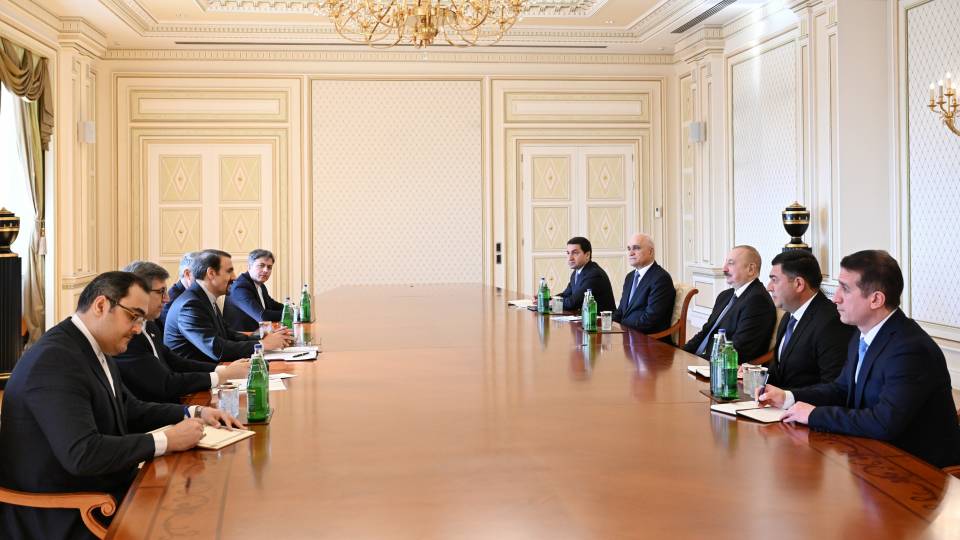Daily News
Thursday, February 23, 2012
FARİZ İSMAİLZADE
There are not many countries in the world where the most famous national hero is a journalist. Not an army officer, general or soldier, but a journalist. Azerbaijan is one of them.
Chingiz Mustafayev, Azerbaijan’s national hero, is loved in every household. He was young, brave and patriotic. He rushed to the frontline during the Nagorno-Karabakh war to film the atrocities, boost the morale of the soldiers and pass the message back home and to the rest of the world.
On the morning of Feb. 26, 1992, Azerbaijanis woke up and saw the footage of the Khojaly Massacre. Children and elderly, women and men, all lying around the meadow, scattered in groups and individually. The white blanket of snow was covered by bodies. Dead bodies.
That scene was truly shocking. Chingiz, weeping and uttering to his cameraman, “Oh my God, Oh my God. ... Film this kid. Film this one.” Several men were picking up dead bodies of kids and loading the truck.
This tape is by far the most famous footage of the Karabakh war. It had finally awakened a whole nation. A nation that still could not believe that their neighbors, the Armenians, the very same people they lived side by side for so many decades, had waged a serious war against them. Up until that, many Azerbaijanis thought that the war was the Kremlin’s trick. Azerbaijanis even sent a rescue team to Armenia after the Gyumri earthquake because they thought it was not the Armenians, but the Soviet Union that was waging this war.
The scale and brutality of the Khojaly Massacre was unseen. People were not simply killed. They were butchered. Corpses were humiliated. Eyes were taken out. Skin was cut off. Tongues, legs, hands, noses, fingers - nothing was spared. Women and children seemed to be the primary target. This inhumanity simply didn’t fit into the minds of TV watchers. It was unseen since Holocaust times. Human Rights Watch termed it the “largest massacre to date in the conflict.”
Where does so much hatred come from? What did these kids do to these murderers? What is the sin of simple, ordinary civilians, running for their lives through the forest, escaping bombing, trying to reach the nearby village. Why so much anger not just to kill, but to kill with extra brutality?
These are the questions to which Azerbaijanis still can’t find answers. But Armenian field commander Serzh Sargsyan helped with a clue to these questions. “Before Khojaly, the Azerbaijanis thought that they were joking with us, they thought that the Armenians were people who could not raise their hand against the civilian population. We were able to break that [stereotype]. And that’s what happened,” he said.
Yes, this is the same Serzh Sargsyan, the current president of Armenia. One only wants to laugh at international law, its toothless approaches, its double standards and its closed eyes.
While the international community pushes for the arrest and punishment of criminal warlords and military commanders in the Balkans, the same international community greets and welcomes the “butcher of the Caucasus.”
In Thomas de Waal’s 2004 book “Black Garden,” Markar Melkonian, the brother of Armenian military leader Monte Melkonian, said, “Khojaly had been a strategic goal, but it had also been an act of revenge.”
The tragedy of the Khojaly Massacre is beyond Sargsyan or Melkonian. It is beyond one person. It is the tragedy of the whole nation. A nation sick with hatred and anger. A nation which is always trying to find a way to revenge. A nation, blinded and wasting its bright future for the sake of dark past.
Armenia has occupied Karabakh. It has occupied Shusha, Khojaly and Laçin. It has also taken over seven regions outside of Karabakh. It has driven 1 million people out of their homes. But it has failed to win a bright future for itself. One cannot go forward by killing children. One cannot feel safe by killing for safety. One can capture a piece of land, but one can not find happiness in those lands. That is the ironic law of nature.
No matter how revanchist one gets watching this footage of Khojaly, no matter how terrified we sit listening to the horror stories from the survivors, I refuse to be like the Armenians. I refuse to live in hatred. I refuse to be stuck in the past. I represent a nation which remembers its past, honors its victims, but looks forward to a bright future.
A strong Azerbaijan is the best punishment for these murderers.
*Fariz İsmailzade is executive vice rector at the Azerbaijan Diplomatic Academy
Link to article

